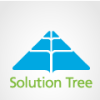
This guest post is written by Shannon Finnegan, a social studies teacher at Hopkins High School in Minnesota.
Throughout my teaching career, I have taught in three vastly different schools: a suburban high school, an inner city 6–12 school, and an alternative high school. In these different settings, I have found that there are certain educational buzzwords and catchphrases that will provoke groans and eye rolls on teacher professional development days regardless of where you work. Words such as differentiation, backwards planning, and standards-based grading are just a few of the phrases that will make teachers cringe on inservice days. When I began teaching at a small school in Brooklyn, New York, I came to loathe one phrase in particular: learning targets. Read more


 1
1



